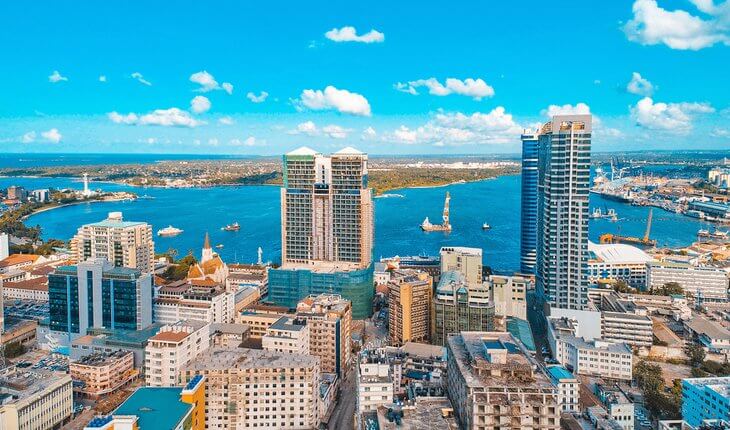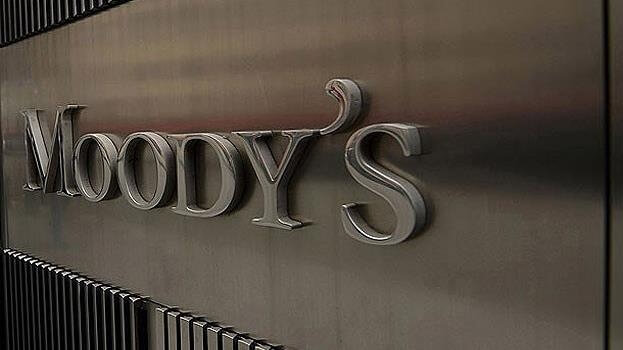Moody’s Investors Service (“Moody’s”) has changed the Government of Tanzania’s outlook to positive from stable and affirmed the B2 foreign and local currency long-term issuer ratings.
The research and data firm in August 2020, downgraded the foreign and local currency issuer ratings of the Government of Tanzania to B2 from B1 and changed the outlook to stable from negative with the downgrade to B2 reflects Moody’s view that governance remained very weak, raising risks to Tanzania’s credit profile.
According to a statement issued by Moody’s, the outlook change to positive reflects Moody’s view that political risks have lessened under the government’s new approach to promoting economic development and engagement with the international community.

“The government’s efforts to improve the business and investment climate and attract foreign direct investment (FDI), most notably in the mining and hydrocarbon industries, offers the prospect for higher potential growth and improving international competitiveness,” the statement said.
It added that Tanzania’s re-engagement with the IMF also has the potential to support higher government revenue generation capacity and unlock greater concessional financing from development partners, supporting debt affordability and increased social spending.
“In turn, such indications that lower political risk may improve the country’s economic and financial environment support Tanzania’s capacity to face the implications of the global shock following Russia’s invasion of Ukraine,” it added.
The B2 rating affirmation reflects Tanzania’s low GDP per capita and institutional weakness, which undermines fiscal strength, notwithstanding its high growth potential and relatively diversified economy, which reduces its vulnerability to shocks. Moody’s expects Tanzania’s moderate debt burden to remain stable and below the B2 median while inflation has remained relatively low and stable despite global price pressures.
The local-currency and foreign-currency country risk ceilings remain unchanged, at Ba3 and B1, respectively.
The two-notch gap between the local-currency ceiling and the sovereign rating reflects the weak institutions and policy predictability, moderate political risk and weak infrastructure set against a relatively small footprint of the government in the economy and limited external imbalances. The one-notch gap between the foreign- currency ceiling and the local-currency ceiling reflects relatively low policy effectiveness balanced against low external debt and an open capital account, which reduces the incentives to impose transfer and convertibility restrictions.
Ratings Rationale
Despite Tanzania’s wealth of natural resources, inflows of FDI have been muted in recent years due to ongoing policy and regulatory uncertainty. Policy uncertainty was most notably impacting investment in the mining sector until a protracted dispute was finally settled in late 2020 and an export ban was lifted.
After assuming power in 2021, the new presidential administration began actively courting international investors and nascent signs of improving investor sentiment towards Tanzania have since emerged, including several investments in the mining sector and renewed momentum behind the long-delayed energy projects.
Sustained foreign investment in export sectors would increase growth potential in Tanzania, the country’s resilience to external shocks and the government’s fiscal capacity.
The government’s structural reform agenda offers the prospect of delivering lasting improvements to
Tanzania’s institutional framework and supporting private sector growth. Initial steps to improve the business and investment climate include relaxing regulations for foreign work permits, streamlining VAT refunds, and tabling legislation that supports local businesses.
The ongoing efforts to improve the regulatory environment, reduce non-tariff barriers and improve the quality of national statistics offers the prospect of delivering sustained increases to potential growth.
In the current context of a global shock triggered by Russia’s invasion of Ukraine, and while inflationary pressures in Tanzania have remained relatively muted, the signs of improvements in the business environment above support the country’s capacity to face potential future economic and financial pressure.
Re-engagement with international Community
President Hassan has traveled extensively regionally and abroad in an effort to improve international relations and attract investment since assuming power. Efforts to re-engage with the IMF have been successful in securing funding to bolster the government’s pandemic response and implement price subsidies to limit inflationary pressures in response to the recent commodity price shock.
Conditions met under the IMF’s Rapid Credit Facility give credibility to the goals in the new IMF Extended Credit Facility program to target institutional capacity development and increase the government’s revenue generation capacity, supporting improvements to fiscal policy effectiveness.
The administration has also taken steps to improve relations with international development organizations by moving to open the civic space and lifting some restrictions on media and political opposition, opening the possibility for additional concessional funding from development partners and easing risks to government liquidity and cost of funding.
Rationale for affirming the B2 Rating
Tanzania’s weak governance and policy effectiveness are constraints on the rating. While the Worldwide
Governance Indicators improved slightly in 2021, Tanzania still ranks in the bottom third among the sovereigns.
Moody’s rates and even lower for government effectiveness and regulatory quality. More generally, despite the nascent signs of improvements mentioned above, institutions and governance strength remains low. In particular, government intervention in the economy has been particularly disruptive in the mining sector, while larger-than-expected tax bills and delayed tax refunds were disruptive to small and medium-sized enterprises.
Tanzania’s weak institutional profile brings into question the durability and sustainability of the government’s new approach and reforms. The sharp change in direction under the new administration demonstrates the relevance of key actors rather than the capacity of the broader institutional framework to the overall policy direction, and the current reform agenda could be disrupted under a new administration.
A weak institutional track record of policy stability and lack of consensus towards credit-positive policies implementation suggests the sustainability of the government’s new approach translating into a durable improvement in credit metrics is less than assured and constrains upside credit potential.
Factors that could lead ro an upgrade or downgrade of ratings
Moody’s would likely upgrade the rating if the government’s efforts to establish a track record of investment- friendly policy and regulatory stability became increasingly embedded in the country’s institutional structures, and supported sustained investment, increasing growth potential and supporting the government’s revenue- mobilisation capacity.
This could include successful implementation of the current IMF program that increases government revenue as a share of GDP or evidence of a broad political consensus regarding policies and legislation that encourage reforms of the country’s institutions and fosters private-sector development, higher levels of foreign direct investment, and increased revenue generation capacity.






